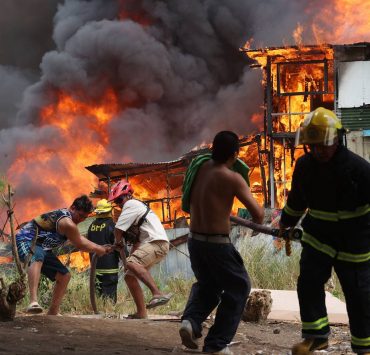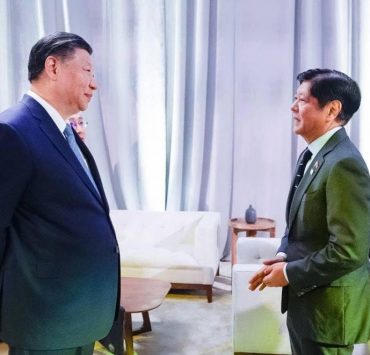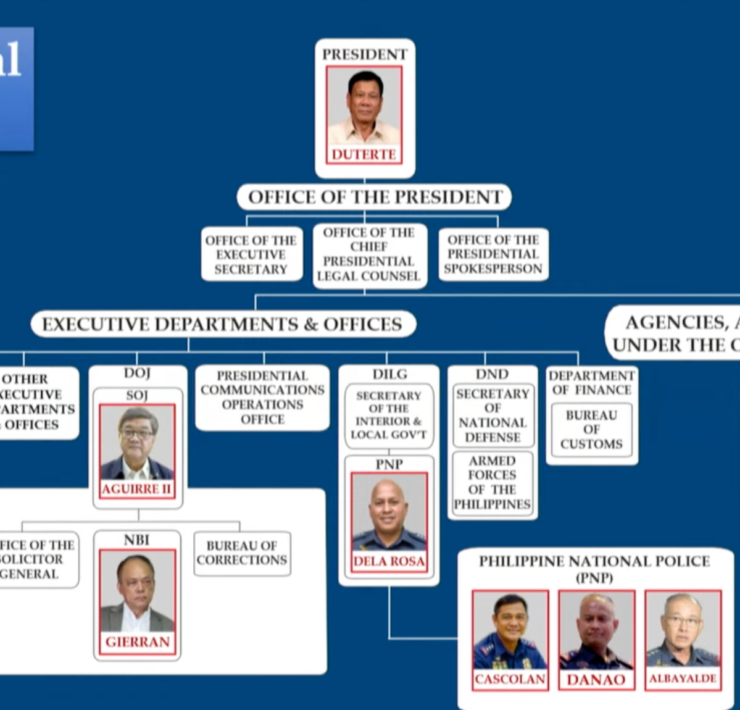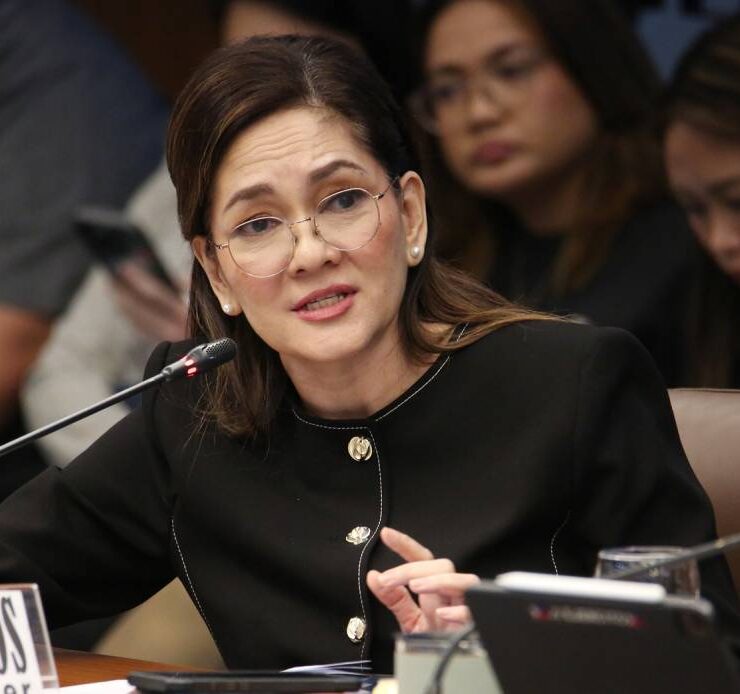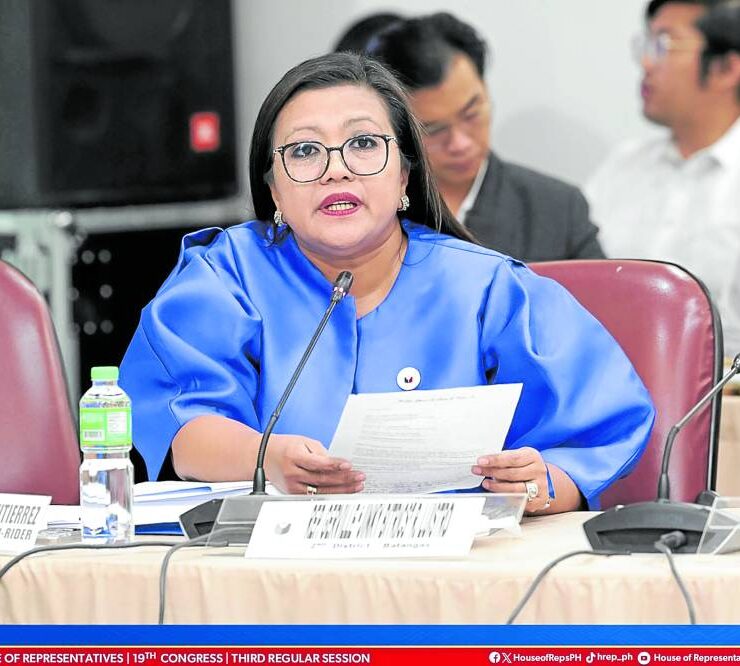House meets pre-Holy Week deadline for Cha-cha bid
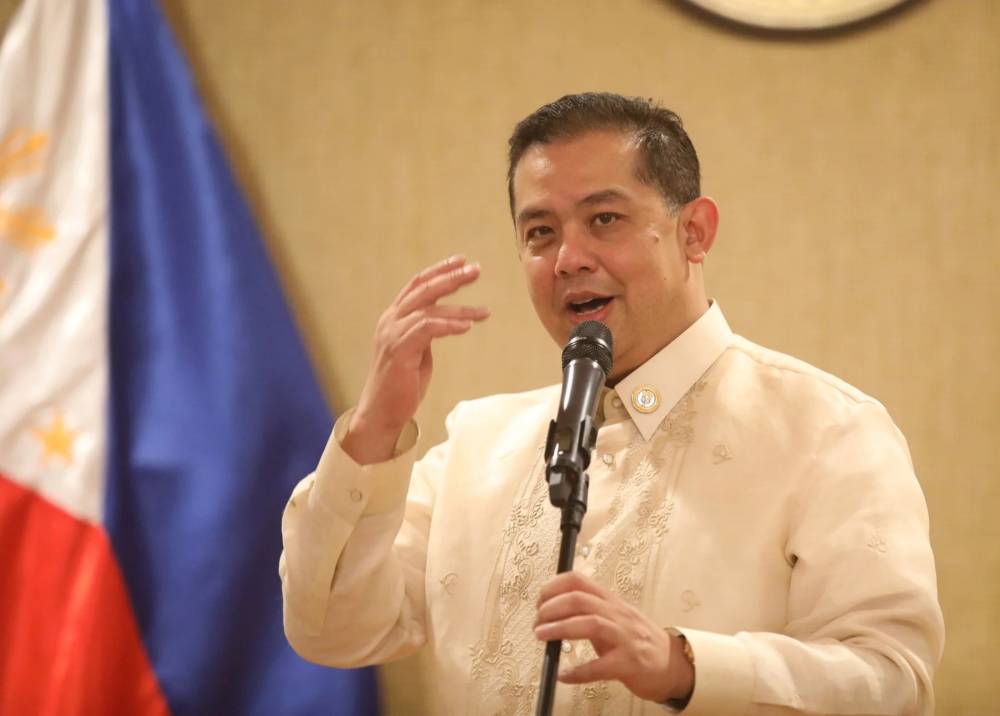
The House of Representatives on Wednesday approved the resolution seeking to amend certain economic provisions in the 1987 Constitution on third and final reading—possibly the furthest and the swiftest that any Charter change (Cha-cha) effort has progressed in the last 37 years.
Filed on Feb. 19, Resolution of Both Houses (RBH) No. 7, authored by Senior Deputy Speaker and Pampanga Rep. Aurelio Gonzales Jr., Deputy Speaker and Quezon Rep. David Suarez, Majority Leader Manuel Jose Dalipe and other House leaders, was finally approved with 288 lawmakers voting in favor, eight against, and two abstaining.
The vote followed at least six marathon committee meetings and three plenary sessions, as the House leadership was determined to deliver RBH 7 before they adjourn for a month-long break starting next week.
RBH 7 is an exact copy of the Senate’s own RBH 6, which seeks to amend Articles 12, 14 and 16 (which limit foreign ownership in public utilities, educational institutions and advertising) of the Constitution.
The Senate version is currently pending at the committee level, as the upper chamber chose to take its time to deliberate on the bill.
‘Last piece in puzzle’
In a statement after the voting, Speaker Martin Romualdez said the proposed economic amendments were the “last piece in the puzzle of investment measures” of the Marcos administration “to sustain our economic growth, create more jobs and income opportunities, and in general, make life better for Filipinos.
“These changes, if ratified by our people in a plebiscite, will greatly boost these measures, including our President’s investment missions abroad which have generated actual investments and pledges in the billions of dollars and created thousands of jobs,” he said.
Other lawmakers took the time to say their final piece on RBH 7 during Wednesday’s plenary session.
In explaining his “yes” vote, Surigao del Norte Rep. Robert Barbers argued that he “did not see anything wrong with allowing foreign capital to manage some of our utilities.”
“All these intentions are not to the detriment of the people but rather for the improvement of their lives. That is obvious. To insinuate otherwise is sheer paranoia,” he said.
Other priorities
ACT Teachers Rep. France Castro, the House deputy minority leader who voted against RBH 7, said she was astounded by the priorities of Congress, which had chosen to prioritize Charter change in light of the continuing problems in education and human rights.
She also criticized the manner by which Congress was now pursuing Charter change by way of ordinary legislation—approving the bills in each chamber and then voting separately—which is not indicated in the 1987 Constitution.
Also thumbing down the resolution were opposition lawmakers Gabriela Rep. Arlene Brosas, Kabataan Rep. Raoul Manuel, Camarines Sur Rep. Gabriel Bordado and Albay Rep. Edcel Lagman.
“The Constitution does not allow for a fourth mode of changing the Constitution,” Castro said, referring to the so-called Bernas formula, named after the constitutionalist and late priest-lawyer Joaquin Bernas.
Lagman, meanwhile, maintained that the country could still achieve its developmental goals without having to introduce amendments.
“RBH 7 is flawed both in procedure and substance. It forfeits Philippine posterity to foreign dominance in violation of the constitutional policy of developing an independent and self-reliant national economy effectively controlled by Filipinos,” he said.
Senate fears
Congressional efforts to amend the Charter, which was drawn up immediately after the Marcos dictatorship was ousted in 1986, started during the administration of the late President Fidel V. Ramos in the 1990s.
However, these failed in large part because of the Senate’s resistance to constitutional change, fearing that the chamber could be abolished if it led to a change in government.
The ball is now in the Senate, whose president, Juan Miguel Zubiri, previously said that achieving 18 votes for RBH 6 “might be difficult but not impossible.”
Zubiri also noted that the Senate would not succumb to any deadline pressure, arguing that the chamber would carefully consider the proposed amendments to the Constitution.
Sen. Juan Edgardo Angara, who heads the subcommittee tackling RBH 6, said they were looking at an October deadline for all deliberations.
Both the House and the Senate had been at odds because of the voting manner for proposed constitutional amendments, as the 1987 Constitution was silent on whether they should vote jointly or separately.
Resource persons
During the House hearings on RBH 7, among the witnesses invited and heard were Socioeconomic Planning Secretary Arsenio Balisacan, former National Economic and Development Authority head Gerardo Sicat, former Finance Secretary Margarito Teves, former Supreme Court Chief Justices Reynato Puno and Hilario Davide Jr., former Supreme Court justices Adolf Azcuna and Vicente Mendoza, Ibon Foundation executive director Sonny Africa, and officials of the Department of Finance, Department of Trade and Industry and Department of Foreign Affairs, and the Bangko Sentral ng Pilipinas with knowledge of foreign direct investments entering the country.
Also invited to the marathon hearings by the House committee of the whole were former Cabinet members, former lawmakers, academics, educators, as well as constitutional framers Puno, Davide, Azcuna, and former Commission on Elections Chair Christian Monsod.














